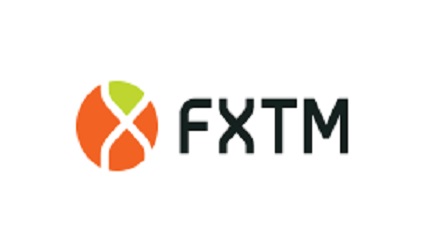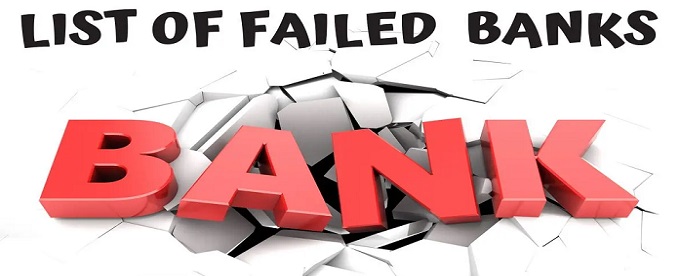E-Financial
Gold – The Good, The Bad, and The Ugly

Weak economies are more vulnerable to uncertainty, political extremes and populism, post-World-War Germany and Russia proved this beyond a doubt. The Gold price tracks economic uncertainty, and by that token, it also tracks the outer reaches of the populist pendulum.
The more uncertainty there is over the economy, the more extreme are the pendulum’s swings to the left or right, and the dollar-denominated Gold price reflects both these phenomena.
In 1973, the then-US president Nixon took the country off the Gold standard, and ever since, traders have seen the asset as a hedge against uncertainty (the good), as a clear signal of economic trouble (the bad) and as a benchmark for populism and political instability (the ugly).
An economy that can’t sustain jobs or its financial system risks heading towards mass unrest. Economic instability creates circumstances that are easily exploited by demagogues and populists, examples include men like Hitler or Stalin.
Political leaders on either side of the political spectrum can gain immensely strong, even authoritarian positions by fear mongering and seeming to offer the only way out of financial or political insecurity.
The realisation that populism can lead to extremism gave birth to the European Union, which is based on the concept that mutual economic interests lead to stronger economies and peaceful cooperation. In 2017, the EU will be 60 years old, but what are the dangers ahead? Much has been made of the recent rise of populism in the US, UK and EU, but we must be careful in choosing our comparisons because circumstances are very different to the first half of the 20th Century when war left these countries utterly devastated.
In addition, today’s mature economies are structured very differently to those in the first 50 years of the 20th Century when they were built mainly on monarchical systems and the value of physical assets.
Back to the recent present, the US narrowly avoided a serious depression after the sub-prime crisis by pumping billions of dollars into the financial system in 2007/8. In 2009, the Gold price hit a record high of $1000 per ounce, reflecting the trading market’s safe-haven buying instincts. That was just the beginning.
By September 2011, the Gold price had hit a record high of $1920 per ounce, and another record was set for the US government debt ceiling.
The US has spent the last two administrations stabilising the economy, but the Federal Reserve is still cautious about raising interest rates. The main sources of the central bank’s reservations are global and domestic growth, which are still slower than expected.
These economic circumstances favoured the more colourfully-populist candidate in the recent US elections, and Donald Trump won the election on a platform focused on popular dissatisfaction and fear over job losses, pinning his campaign on immigration control and protectionist economic policies.
Pre-election, the Gold price rose, but those who are pinning their hopes on US populism pushing the Gold price even higher may be disappointed. Since the US elections and the end of uncertainty around them, Gold has fallen to below $1190 per ounce, indicating that investors are partial to Trump’s economic policies – at least for the time being.
Meanwhile, the EU and UK are going through a period of relatively slow growth and still recovering from their own recessions. The ECB and Bank of England are spending heavily and pumping money into national assets like sovereign and corporate bonds while keeping interest rates low.
The low growth rates in the last eight years have led to higher unemployment and more social unrest in the UK which Brexit campaigners directed at the EU, blaming it for the immigrants seen as taking British jobs.
True to form, the Gold price spiked in July 2016 after the Brexit vote triggered risk-aversion and uncertainty amid the increasingly populist and nationalist campaigning from the Brexit camp.
The UK is not alone in this trend; in the Spring of 2017, France faces the choice of a far-right candidate or a national front candidate during presidential elections. Gold could heat up during this period, especially since UK Prime Minister Theresa May said she will trigger Article 50 in March 2017.
The expectations are rising that there will be a ‘hard’ Brexit, meaning that the UK would be left out of the Single Market and go back to the days of bilateral tax and visa treaties with individual EU states, restricting migration and trade.
In addition to the Brexit fears, Gold was driven higher in 2016 during the Federal Reserve’s monthly announcements and continuing hesitation over raising US interest rates. Investors have a love-hate relationship with Gold and the Federal Reserve, when they’re disappointed in the Fed, they love Gold and buy it passionately. The reverse is also true, when traders fall back in love with the Fed, Gold is spurned in favour of USD-denominated assets.
Have we reached the point of nationalism, economic devastation and populism that led to dictatorships in Europe and dragged the world into more war? By no means. The economic outlook is still far more stable than it was post-World War II, and provided the US economy keeps growing there is more chance of other mature economies following suit.
The Gold price can indicate what level populism reaches before it tips over into extremism, before slow growth tips into recession. What it’s telling us now is that economically-speaking, we’re not out of the woods yet.
The good scenario is Gold reaching pre-subprime crisis levels below $1000 per ounce. The bad scenario is a rise over $1300 per ounce, as seen during the Brexit shock. The ugly – at least in terms of uncertainty and instability – is a return to $1920 and over.
E-Financial
NDIC Says No Customer Loses Deposits in Failed Banks

Nigeria Insurance Deposit Corporation (NDIC) has guaranteed customers of insured commercial banks prompt recovery of their deposits in the event of risk liability or liquidation.

In addition, the corporation assured depositors of its statutory mandate, which includes supervising banks for risk assessment, ensuring ethical standards, and enhancing financial stability in the country.
Mrs Emily Osuji, executive director, Corporate Services, NDIC, gave the assurance during a Stakeholders Town Hall Meeting on customer protection regarding bank charges and deposits in Kano.
Mrs Osuji posited that the NDIC has, in recent times, demonstrated a strong commitment to protecting the hard-earned savings of Nigerians and sustaining confidence in the banking system.
She cited the cases of defunct Heritage Bank Limited, Union Homes Plc and Aso Savings and Loans Plc, where depositors received their deposits promptly after meeting the relevant requirements.
The NDIC boss, however, reminded customers to link their Bank Verification Number (BVN) as a unique identifier to locate their alternate accounts, where their claims will be transferred.
The executive director affirmed that NDIC has expanded coverage to protect about 99 per cent of depositors in Nigeria, a deliberate policy aimed at protecting small savers, promoting financial inclusion, and enhancing trust in the banking sector.
She said, “The corporation fulfils its role through its core mandates of deposit guarantee, bank supervision, distress resolution and bank liquidation, all of which are geared towards protecting the hard-earned savings of Nigerians and sustaining confidence in the banking system.
“Our strapline, ‘Protecting your bank deposits!’, is more than mere words for us. We stand by this statement as a firm commitment to our mandate of ensuring that depositors have access to their hard-earned savings in the event of bank failure.
“This is a critical responsibility that we do not take lightly. This is especially so in times of financial uncertainty and distress, with the NDIC standing as a pillar of safety and reassurance for depositors, particularly the most vulnerable.”
Speaking on the concept of stakeholder engagement, Hawwau Gambo, head of Communication and Public Affairs, said the corporation was compelled to provide clarity, build trust and strengthen depositor confidence amid misconceptions.
Gambo noted that the recent revocation of the operating licences of some banks by the Central Bank of Nigeria, (CBN) and the current public discourse on banks’ recapitalisation efforts have reinforced the need for sustained stakeholder engagement.
She reminded that sustained awareness is pertinent to dust, given already heightened public interest and featured public confidence in the financial institutions.
“NDIC’s last Public Awareness Survey highlighted the need to enhance interpersonal communication channels to improve public understanding of deposit insurance. It is against this backdrop that the Stakeholders’ Town Hall Meetings were conceived as a structured, interactive platform for dialogue, education and feedback,” Gambo noted.
E-Financial
CBN Expresses Concern Over Foreign Investments in Nigeria Fintechs

The Central Bank of Nigeria in its 2025 Fintech Policy Insight Report, has raised concern over Nigeria’s fintech sector heavily dependent on foreign investment, exposing it to swings in global markets.

The report said the sector has shown resilience despite global economic pressures, but warned that reliance on external capital leaves it vulnerable to market fluctuations.
It would be recalled that startups in the country raised $520m in equity funding in 2024, down from about $747m in 2019, when Nigeria captured roughly 37 per cent of all African startup investment.
This performance, amid significant global macroeconomic gyrations, underscores Nigeria’s position as a key hub for financial innovation. The sharp rise in interest rates in advanced economies during 2022 contributed to a slowdown in venture capital funding.
“These dynamics highlight the importance of developing domestic funding avenues, such as leveraging Nigeria’s capital markets, to reduce currency risk and sustain fintech growth,” the apex bank stated.
Olayemi Cardoso, CBN Governor, said Nigeria is undergoing a rapid and significant financial evolution. Over the past decade, the nation’s fintech landscape has grown from a handful of startups into one of Africa’s most vibrant innovation ecosystems.
“Even amid global economic headwinds, Nigerian fintech firms continued to attract investment and drive change. Today, with improved stability of our currency and domestic economy, it is clearer than ever that financial innovation can advance inclusion at scale,” the executive commented on the report.
In addition to funding, the central bank underscored Nigeria’s continued leadership in digital financial infrastructure. More than 25 per cent of all electronic transactions in Africa’s most populous nation are processed via real-time payment channels, with close to 11 billion transactions processed in 2024, up from five billion in 2022. The report described Nigeria’s instant payments platform, NIBSS NIP, as among the most mature and widely adopted globally.
The report also mentioned the need to strengthen system integrity and reputation, pointing to compliance reforms, anti-money laundering supervision, and consumer protection measures as key priorities for sustaining investor confidence.
By focusing on domestic funding, regulatory modernisation, and innovation infrastructure, the CBN aims to position Nigeria not only as a fintech front-runner but also as a rule-setter whose regulatory lessons are relevant to peer emerging and high-growth economies globally, the central bank said.
Stakeholders surveyed by the CBN also cited compliance costs as a significant challenge to innovation. According to the report, 87.5 per cent of respondents said that the cost of meeting regulatory and risk requirements significantly impacts their capacity to innovate, while delays in product approvals and regulatory timelines also remain major bottlenecks.
The report noted that 62.5 per cent of fintech firms plan to expand regionally, and there is strong support for regulatory pass-porting frameworks to enable compliant expansion into other African markets. However, the CBN warns that such cross-border growth requires a stable funding base and coordinated regulation.
E-Financial
UBA’s Easy and Instant Account Opening Thrills Returnee

After a few years abroad, I returned to Nigeria and faced a dilemma. Let me tell you all about it.

UBA
A few days ago, I was dragging my luggage through Murtala Muhammed International Airport. Everything felt bright and beautiful. Not necessarily in aesthetics, but in the vibrant colours, sounds, and energy all around. After three intensive years in the UK, I was finally back home. Ready for the hustle and bustle of Lagos life, and yes, the comfort of my parents’ home.
The plan was simple. Settle down and get my life on track. I’d sorted the job, and I had my person. But then came my dilemma. Money!. This doesn’t mean I was short of it or had too much of it. The real issue is where to actually keep and manage it in this country with daily dramatic happenings. With just two weeks left before I resumed at my new workplace, I had no time for long queues, endless paperwork, or the classic “Nigeria bank stress.” So, I needed an account, and I needed it fast.
So I turned to my best friend, Google, and typed, “Instant account opening in Nigeria.”
In less than a second, I was redirected to the United Bank for Africa instant account opening portal. A few taps later, and I had a fully functional account. Just like that. I could receive my funds, transfer my funds, and start building my financial life here again.
In less than a second, I was redirected to the United Bank for Africa instant account opening portal. A few taps later, and I had a fully functional account. Just like that. I could receive my funds, transfer my funds, and start building my financial life here again. Talk about ease, and this beautiful experience truly exemplified that definition
I was genuinely amazed. It felt too easy, almost suspiciously easy. But it was real, I mean, really soft like they were just thinking all about me while developing this new feature.
If you’re like me and pressed for time, avoiding unnecessary stress, or just ready to sort your finances without the hassle, consider this your sign.
UBA’s instant account opening is a game-changer. No queues to cut into your precious time. Just you and your phone, minutes away from being banked.
Get started here: https://aop.ubagroup.com
Trust me, if I could do it between unpacking and settling in, you can do it too. Your future self will thank you.

 Telecom3 days ago
Telecom3 days agoNCC Committed to Regional Digital Integration – Maida

 General News3 days ago
General News3 days agoIndigenous Firm Deploys 400,000 Smart Electricity Meters in 2025

 E-Financial3 days ago
E-Financial3 days agoCBN Expresses Concern Over Foreign Investments in Nigeria Fintechs

 E-Financial3 days ago
E-Financial3 days agoBOI Secures CBN Nod for Sharia Banking, Unlocks Ethical Funding Boom

 Telecom3 days ago
Telecom3 days agoITU Top Director Visits NITDA, Boosts Nigeria’s Digital Literacy Push

 E-Financial3 days ago
E-Financial3 days agoUBA’s Easy and Instant Account Opening Thrills Returnee

 News3 days ago
News3 days agoEFInA Unveils Research Fellowship Programme to Deepen Financial Inclusion Impact

 General News2 days ago
General News2 days agoCBN, NCC Propose Instant Refunds for Failed Airtime, Data















